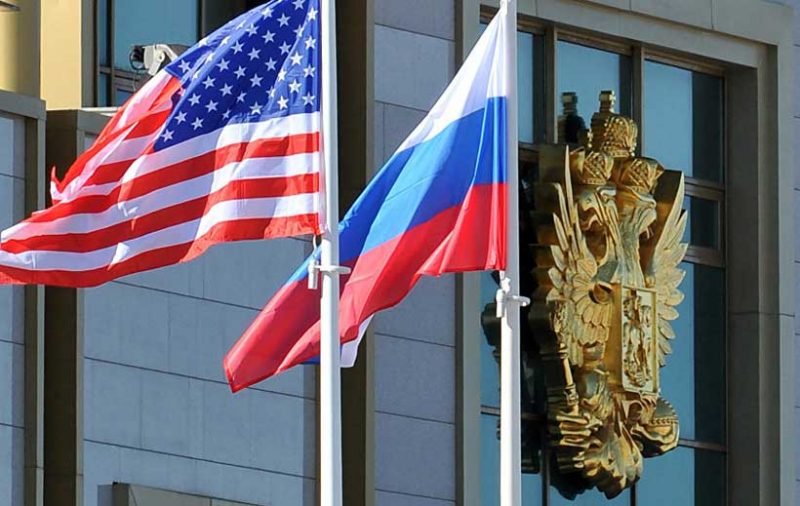U.S. banks tackle Russia sanctions fine print, worry over escalating restrictions

U.S. banks were well-prepared for the Western sanctions announced so far over Russia’s aggression towards Ukraine, but they are still nailing down details and worry that new measures could increase the cost and complexity of enforcing the new restrictions, lawyers and industry executives said.
Russian President Vladimir Putin authorized a military operation in eastern Ukraine on Thursday in what appeared to be the start of war in Europe over Russia’s demands for an end to NATO’s eastward expansion.
U.S. President Joe Biden said he would announce further sanctions on Russia on Thursday, in addition to financial measures imposed this week.
The United States, the European Union and Britain on Tuesday announced new sanctions on Russia after Moscow’s recognition of two separatist regions in Ukraine. Chief among their targets: Russian banks and their ability to operate internationally.
Washington imposed the harshest measures on Monday prohibiting trade and investment between U.S. individuals and the two breakaway Ukraine regions and moving on Tuesday to cut off Russia state-owned Promsvyazbank and Vnesheconombank and 42 of their subsidiaries from the U.S. financial system.
The U.S. Treasury also barred trading in newly-issued Russian sovereign debt, and ordered that assets relating to a handful of Russian elites and their family members be frozen.
Financial institutions are the primary enforcers of sanctions.
In the past they have paid hefty fines for falling down on the job but since 2014 when countries sanctioned Russia for annexing the Crimea, banks have pulled back from the region and beefed up their sanctions compliance programs.
U.S. banks spent an estimated $35.2 billion on financial crime compliance – including sanctions, anti-money laundering checks and controls against other illegal activities – in 2020 alone, according to a LexisNexis survey.
As tensions in the region rose, the Biden administration was in touch with the industry for several weeks on potential measures and alerted banks ahead of Tuesday’s announcement so the industry could prepare, three industry sources said.
“The new U.S. sanctions should not be hard to implement because, at least for now, the Russian bank designations are fairly discrete and, post-Crimea, U.S. and global banks have had ample time to address the nuances of these kinds of sanctions,” including identifying beneficial asset owners, said Mario Mancuso, international trade partner at Kirkland & Ellis LLP.
Still, industry executives starting to implement the rules on Wednesday said they were seeking additional clarity from the Treasury on some details, most importantly the precise geographic boundaries of the breakaway territories.
“Those jurisdictions are defined under Ukraine law but they may or may not be what the breakaway jurisdictions assert is within their alleged sovereignty and that may change,” said Andrew Shoyer, a partner at law firm Sidley Austin.
He added that the 30-day deadline the Treasury had given companies to comply was the toughest it dishes out.
A spokesman for the Treasury did not immediately respond to a request for comment.

More to come
The White House and other nations said Tuesday’s measures are just the start. Some additional sanctions, like expanding their scope to include more Russian banks or individuals would be relatively simple to handle.
But executives flagged concerns that jurisdictions might diverge in their sanctions approach if disputes arose over how to address Russian aggression. Reuters reported last week that the U.S. and its allies are not agreed on how they should respond to non-military Russian aggressions, like identifiable cyber attacks.
Conflicting sanctions regimes would be more complex and expensive to implement, executives said.
Another major question is whether Biden imposes “secondary sanctions” on overseas parties that do business with the underlying sanctioned entities. Those are also trickier to implement because of the complexity of identifying business ties.
Some financial industry executives have also told the administration that they oppose any sanctions that would target Russia’s access to payment provider SWIFT, which is used by more than 11,000 financial institutions in over 200 countries.
Such a move could hurt Russian banks but it would also be disruptive for the global payments system and make it tough for creditors to get their money back from Russia.
While the White House has downplayed that option, lawmakers could pursue it. Although Congress is on recess this week, Isaac Boltansky, policy director for brokerage BTIG, said he expected lawmakers to advance legislation to challenge Russia’s action soon.
“There will also be an effort to ban Russia from the international payments infrastructure SWIFT, but there are concerns that doing so could harm Russian creditors awaiting funds,” he added.
Reporting by Michelle Price and Pete Schroeder, additional reporting by Hannah Lang and Liz Dilts, editing by Richard Pullin



















